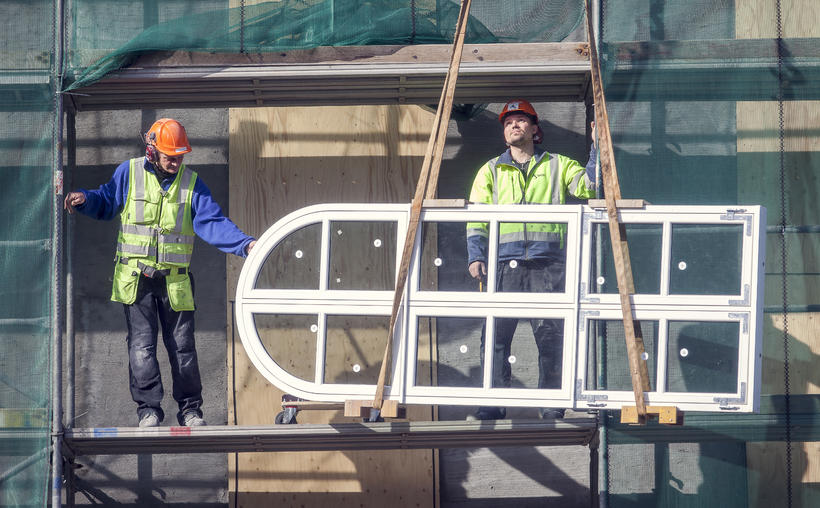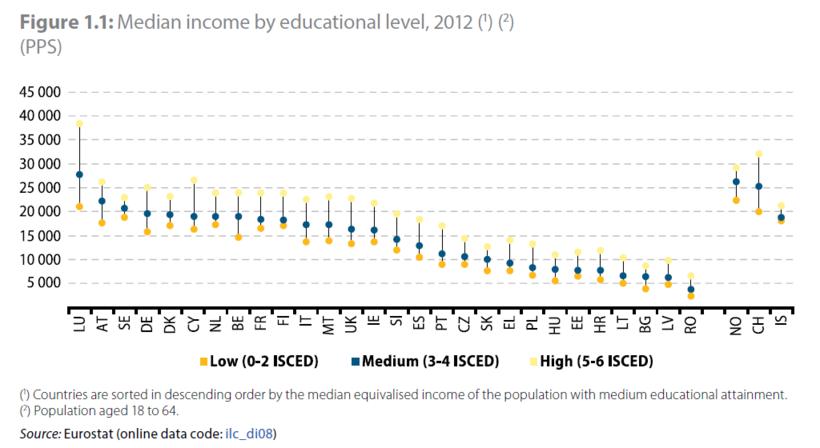Icelandic graduates short-changed?
The difference between income for workers with lower and higher education is very small in Iceland. Photo: Styrmir Kári
Iceland has come bottom of a list of 31 European countries measuring the average extra earnings of university graduates. When the average income of workers having completed further education is compared to that of workers having completed only lower education, the smallest difference is found to be in Iceland.
Income vs education level
This is one of the findings of the 2014 Living Conditions in Europe report published by Eurostat. Workers are grouped into three categories: those having completed ‘lower education’, ‘upper secondary education’ and ‘tertiary education’. The average earnings of each group is then calculated in the 28 countries of the European Union (EU), plus Iceland, Norway and Switzerland.
According to figures for 2013, Luxembourg, the United Kingdom and Cyprus are the three countries where university graduates can expect the highest extra income as compared to those having left education at the age of sixteen. Completing university study in these three countries secures workers on average a 68%-84% higher income than their lower-education counterparts.
Graduate extra income just 16%
The corresponding figure for Iceland is just 16%, the lowest difference in the 31-country group. In absolute terms, Iceland performs rather well as regards the average yearly income of workers with just lower education. At €20,798 (approx. ISK 3 million) per year, Iceland places a respectable seventh out of the 31 countries. When the average income of university graduates is considered, though, Iceland slides down to 14 th place (€24,086, approx. ISK 3.5 million).
Specific job-market structure
According to Vilhjálmur Egilsson, Rector of Bifröst University, this situation can be explained by the specific composition of the Icelandic job market. “Some sectors, e.g. fisheries, not requiring higher education have traditionally involved high wages, while others which require university education, such as health and education employees, have lower wages.” In his view, this is not necessarily cause for concern, the real issue being how to increase the value of all fields of work. This situation certainly does nothing to discourage people from undertaking higher education, for which there is “much demand”.
Difference should increase
Kolbeinn Stefánsson, an expert from Statistics Iceland, agrees with the job-market composition argument but concedes that these figures could indicate that education is not prized as highly in Iceland as elsewhere in Europe. “Another possible reason is the later arrival of university education in Iceland as compared to other countries. Many factors suggest that highly-educated workers in Iceland are relatively young. Since wages tend to rise throughout one’s career, we may see the income gap between these groups widen in the future,” he suggests.
The full text of the Eurostat report can be found here .









